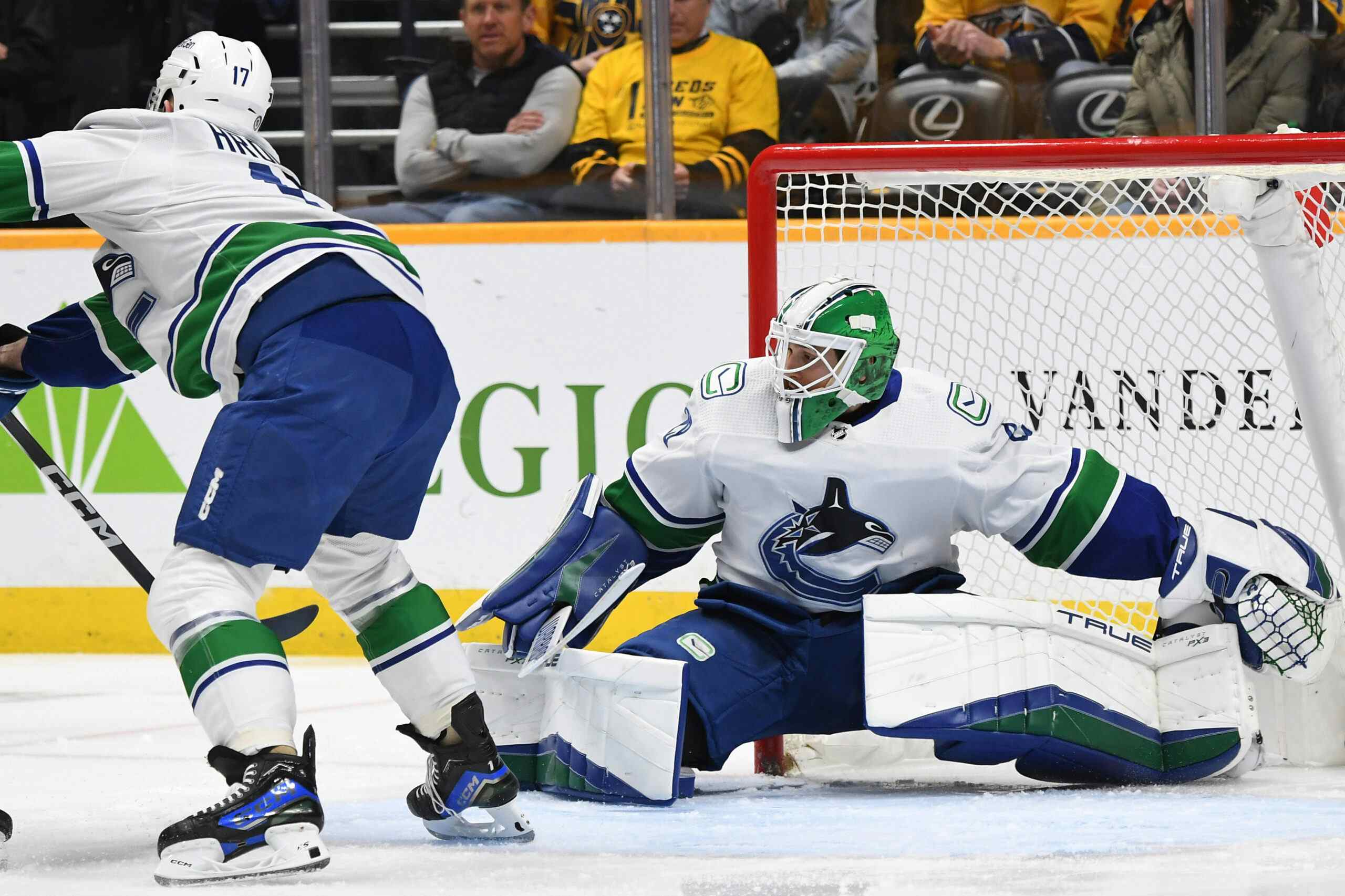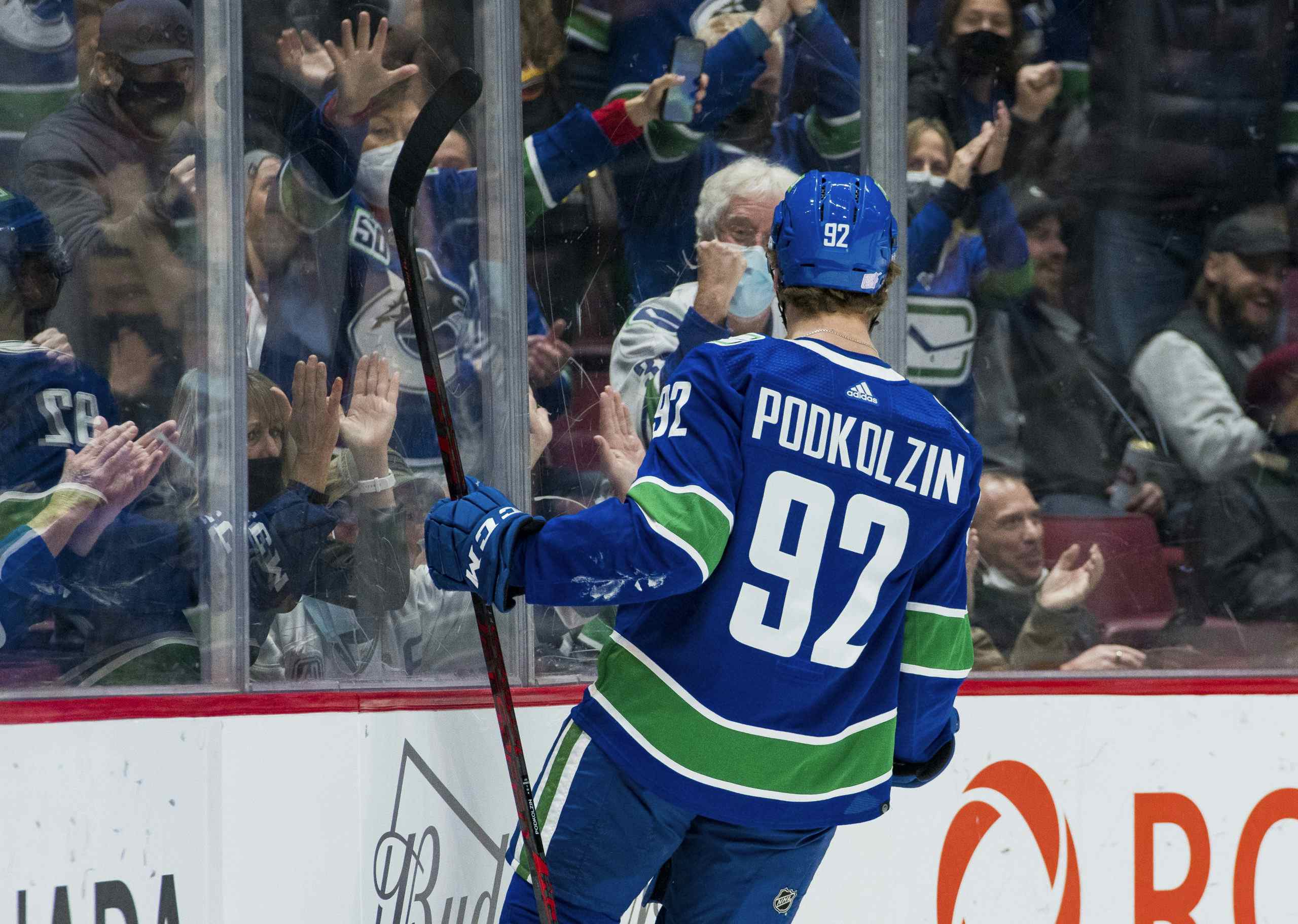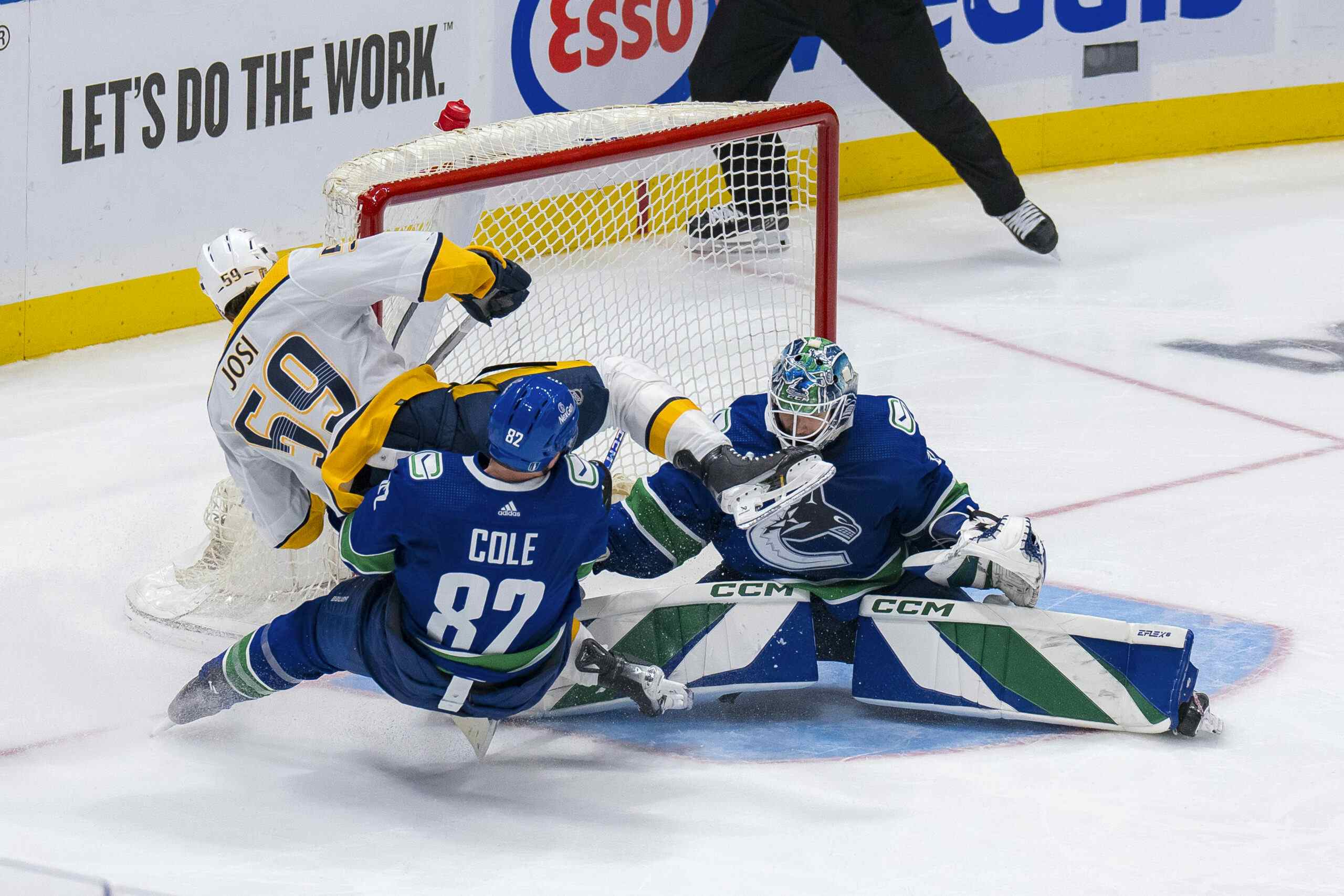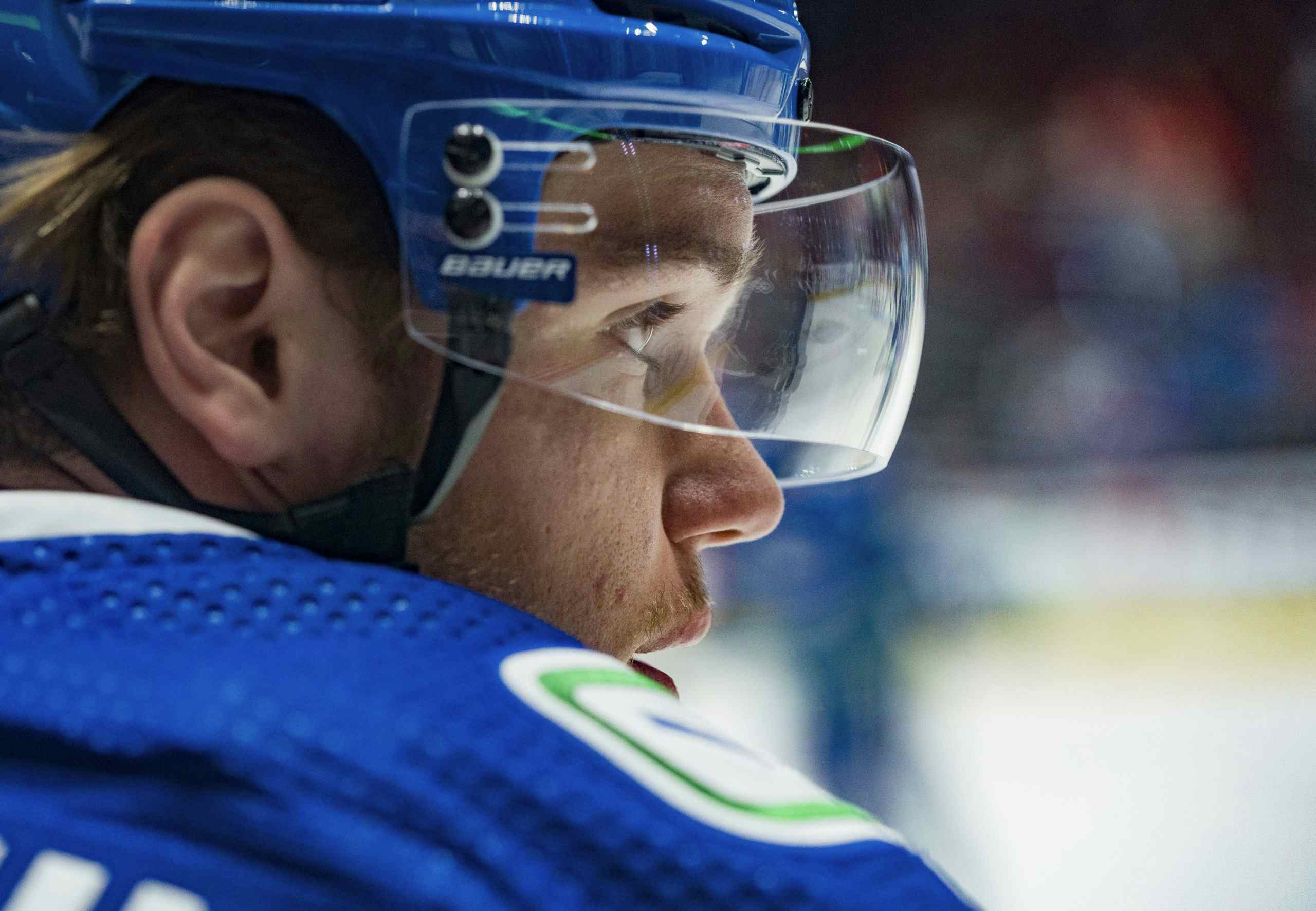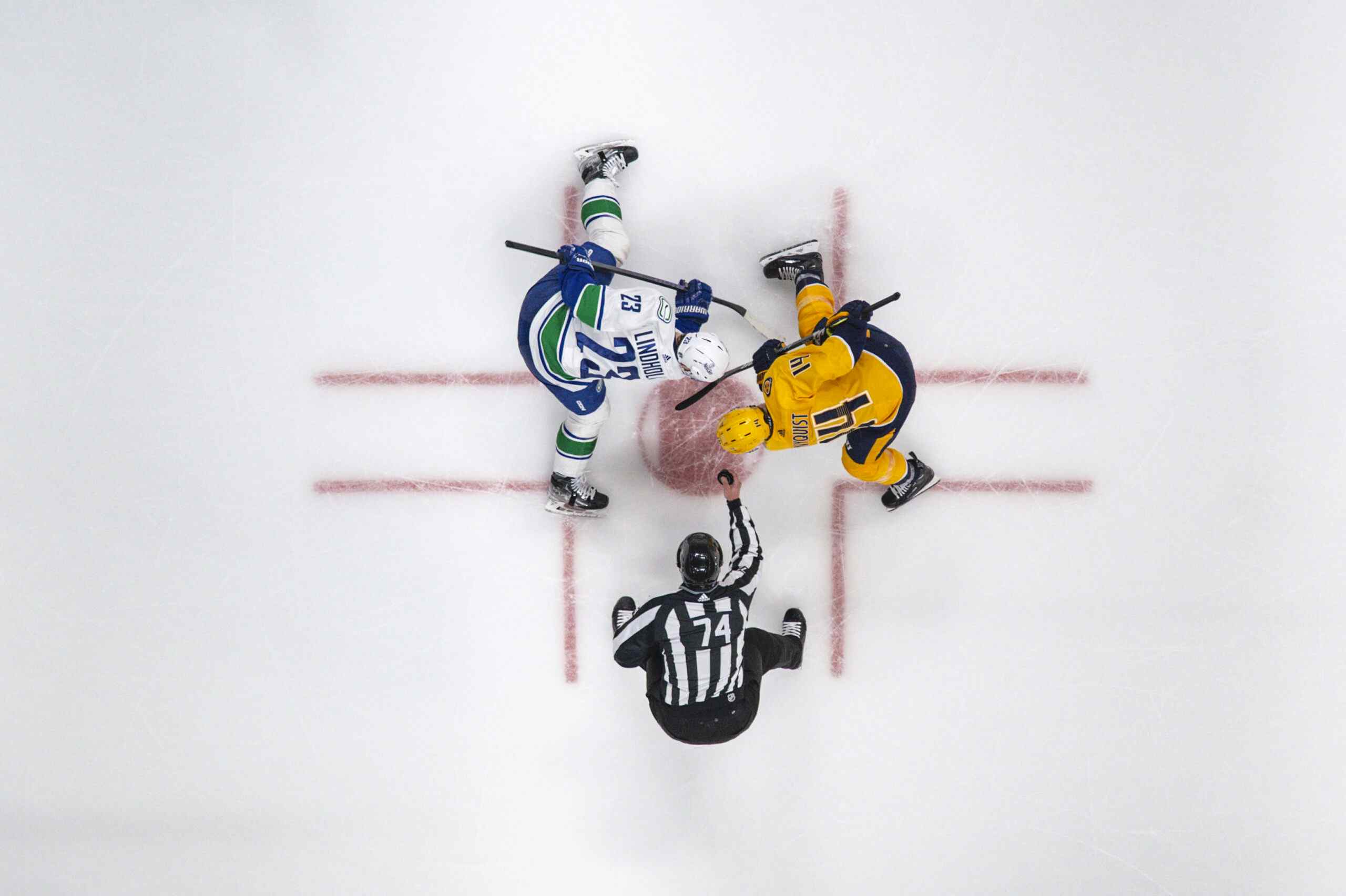Possible Outcomes Of The NHL’s Hiatus, And What They Would Mean For The Canucks
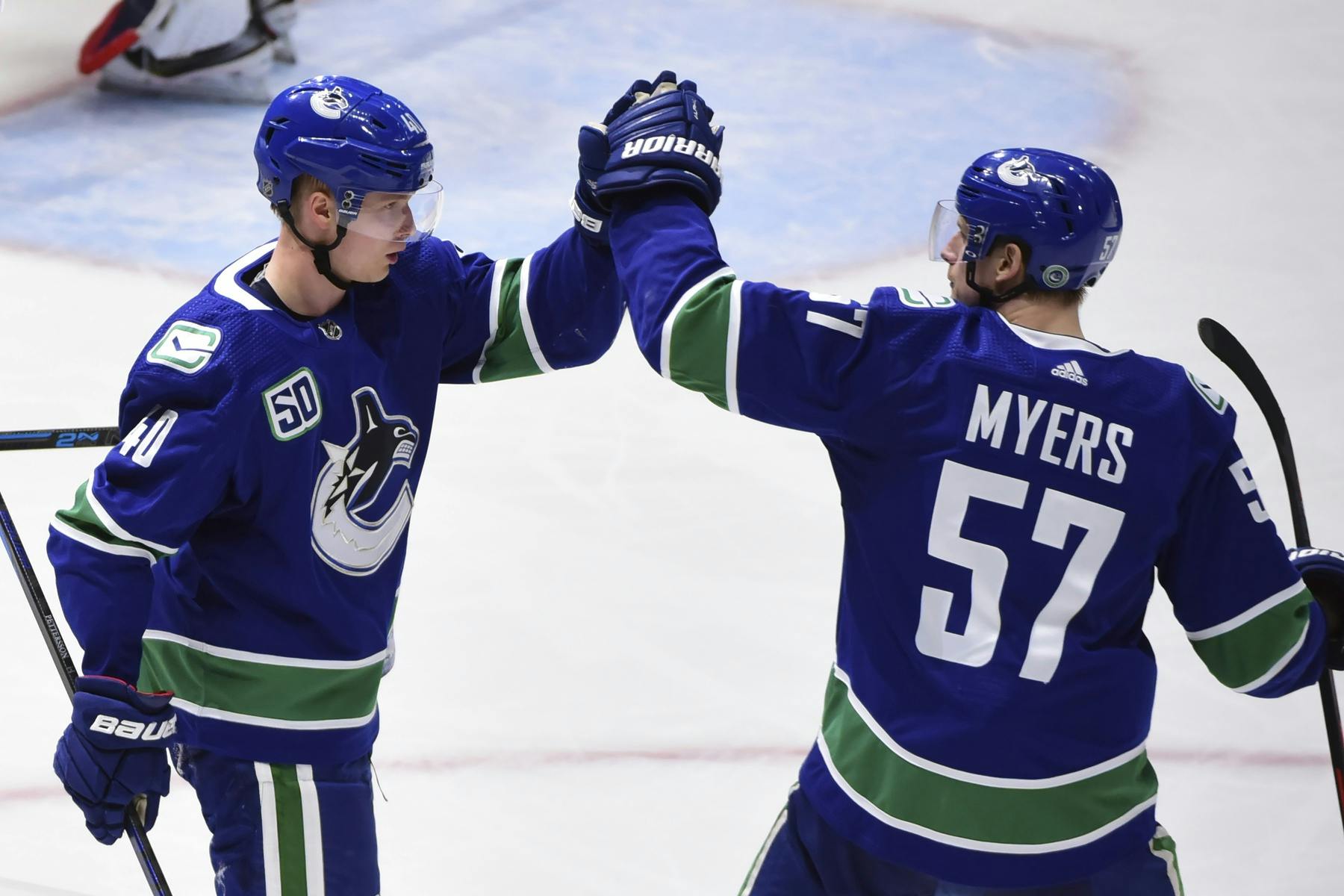
We’d like to start this one with a disclaimer.
The global pandemic currently sweeping the world is something that affects all of humanity, and the consequences have been and will continue to be dire for certain individuals. At this point, protecting the vulnerable has to be the primary concern. Hockey, or any other sport, is barely even a tertiary concern – there are simply more important things to be worrying about right now.
If the cancelation of the NHL season is the only way in which this outbreak affects you, then consider yourself lucky.
With all that being said, this is still a hockey blog, and we’ll continue to talk hockey. At the very least, we hope to provide a distraction.
That’s why it’s our job to write about all the potential outcomes of the NHL’s suspension of play and all the potential implications for the Vancouver Canucks – just so long as we’ve made it clear that such speculation is fairly low stakes in the grand scheme of it all.
As of right now, nobody really knows when the NHL will resume play, and in what shape it will return, but there are only so many possibilities to explore.
Multi-Week Delay, Then Full Resumption
It’s difficult to imagine the NHL’s current hiatus lasting anything less than two to three weeks. In a best-case scenario, the situation regains some semblance of normalcy in the coming week and the league is able to resume the 2019/20 season in its entirety – albeit with everything bumped back by a month or so.
Oddly enough, this outcome would be rather beneficial for the Vancouver Canucks. They would pick right back up where they left off – in the midst of a tight playoff race – but enough time would have passed for Jacob Markstrom, Chris Tanev, and maybe even Josh Leivo to return to health.
Other teams would be in the same boat, of course, but how many of them are currently missing their most valuable player?
One Month Hiatus, Then A Shortened Regular Season And Playoffs
Most prognosticators expect that the NHL will be out of business for at least a month, and that could push the schedule back too far into the summer for finishing the season outright to be viable. One possible outcome would be reducing the dozen or so games left on everyone’s schedule and then starting the playoffs as per usual.
This would give those teams still on the postseason bubble a reasonable chance to play themselves in, though they’d have less time to do it. Given that the final few wildcard spots were always going to come down to the wire this year, it wouldn’t be that much of a change in fortunes. For the Canucks, it would be the same circumstances they were always going to find themselves in – only now they’d be playing those last few desperate games with a healthier roster.
It’s not quite as simple as it sounds, however. If the NHL were to shut down for a month or longer, some sort of impromptu training camp would be required, as teams would presumably not be practicing at all during the hiatus. That means even more games cut out of the remaining regular season schedule.
As well, it’s also worth mentioning that any scenario in which fewer games are ultimately played is going to reduce the league’s revenue for the season – which would probably prevent the salary cap from increasing much, if at all, next year. For the Canucks and several other organizations, that could be a devastating blow.
One Month Hiatus, Then A Play-In Tournament
An alternative to the above scenario model – in which the league takes about a month off, and then resumes – would be for the remainder of the regular season to be replaced by some sort of a play-in tournament.
There are many different forms that such an event could take, but this author pictures it something like this:
-The top three in each division are automatically granted playoff spots.
-Everyone who still had a realistic chance at a wildcard position goes into the tournament, seeded by points-percentage.
-The tournament is a double-knockout bracket. Last two teams left standing in each conference get the wildcards.
This sort of thing has never been done in the NHL’s history, and that would undoubtedly create a lot of excitement for the fans – though it would also increase the stress for those teams that actually have to play in the tourney. Having a mini-playoffs before the actual postseason could be a good way for the league to make up some of the revenue they lost with the hiatus.
For the Vancouver Canucks specifically, though, this format would probably be a disadvantage. Based on points-percentage, the Canucks are already in a playoff spot, so any sort of play-in tournament would just give the teams below them a better shot at knocking the Canucks out. The sheer thrill of an NHL-ified March Madness would probably quiet any grumbling, at least.
Rest Of Regular Season Canceled, Straight To Playoffs Based On Point Percentage
The NHL could always choose to cancel the rest of the regular season completely, and resume play with the start of the 2020 Stanley Cup Playoffs whenever it is safe to once again host games – after a training camp of reasonable length, of course.
But whether or not the Vancouver Canucks would get to participate in said postseason would be determined by how exactly the league decides to settle the current standings.
As of the beginning of the hiatus, the Canucks are officially out of a playoff spot – but only because they’ve played fewer games than some of the teams above them. Based on points-percentage, Vancouver is ranked seventh in the Western Conference and third in the Pacific Division, which should put them firmly in the playoffs.
This is a scenario that would work out just fine for the Canucks, if not the ownership’s bottom-line. They’d enter the postseason as healthy as can be, and they’d matchup with the Edmonton Oilers, a team with which they split the season series. Without even realizing it, JT Miller and Thatcher Demko would have clinched the playoffs with a dramatic shootout victory, which is retroactively pretty cool.
Points-percentage also seems like the fairest way to suss out playoff spots if the regular season has to be scrapped and a play-in tournament is not feasible – but, unfortunately, it’s not the only route the NHL could take.
Rest Of Regular Season Canceled, Straight To Playoffs Based On Current Standings
The league could very well decide that the most straightforward way of leaping right from the hiatus to the Stanley Cup Playoffs would be to use the standings as they sat when the suspension of play began – and that would put the Canucks just on the outside looking in.
Vancouver fans would rally strongly against this, arguing that Calgary and Winnipeg are only ahead of them because they happened to play more games before the hiatus. But Calgary and Winnipeg fans would argue that they actually earned more points than Vancouver did, and that points-percentage is too hypothetical to rely on.
From their perspective, there would be no guarantee that the Canucks – if allowed to play additional games – would have made up the difference in the standings.
This outcome seems unlikely, but not impossible – and it would have some rather disturbing implications for the Canucks.
Not only would they be knocked out of the playoffs and have to suffer through the longest offseason since the last lockout, they’d have been eliminated by Winnipeg’s most recent victory over Edmonton without even realizing it at the time. It would make the team’s recent losing streak all the more retroactively devastating.
Missing the playoffs in such a fashion would also be a bit of egg on Jim Benning’s face after he swung big for the rental of Tyler Toffoli at the Trade Deadline.
It would, however, mean that the Canucks regain their 2020 first round draft pick, with the 2021 pick automatically going to the New Jersey Devils by way of Tampa Bay. Given the reported strength of the 2020 draft class, this would be a passable consolation for what would be almost – but not quite – the worst-case scenario.
Total Cancelation
That worst-case scenario, of course, is that the NHL does not resume play in 2020 – and that the entirety of the 2019/20 season is scrapped.
This would have massive implications across the league, not the least of which is what to do with the Stanley Cup, but there are also some serious Canucks-specific consequences to consider.
First and foremost is what would happen to the draft pick from the JT Miller trade. It was supposed to go to Tampa Bay – and now New Jersey – if Vancouver made the playoffs in 2020, but what if there are no playoffs? There’s no clear answer for this as of yet.
There’s also something to be said about the Canucks’ second-most significant acquisition of the season, Tyler Toffoli. Jim Benning traded for him at the 2020 Trade Deadline with the understanding that Toffoli would at least be around for the rest of the regular season and then the assumptive playoffs – and he paid accordingly. Paying a rental price-tag for ten meaningless regular season games worth of Toffoli is less than ideal, but it might be unavoidable, because it’s hard to imagine any sort of compensation being offered for teams in this situation.
There are plenty of other contract issues to contemplate, and some of them also involve Toffoli. An incomplete season will no doubt have an impact on contract negotiations, and that may be to the detriment of the club. Someone like Toffoli might have cooled down over the remainder of the regular season, but now he gets to walk into negotiations with ten points in ten games. Jake Virtanen’s production might have slowed down in the stretch-run, but now he’ll always have that 20-goal pace to point to.
There’s also contract status to consider. Not getting a chance at the playoffs in a season in which both Elias Pettersson and Quinn Hughes are still on their ELCs would be an opportunity missed. The full contract year will be eaten up, but the franchise won’t be getting their full value on it.
And speaking of money, we’d be remiss if we didn’t reiterate the issue of the salary cap. If the NHL cancels any portion of its season, and especially the Stanley Cup Playoffs, it is going to take an enormous hit in revenue – and that’s going to chop down next season’s salary cap. Last we heard, the cap was soaring to as high as $88 million, but it’s difficult to see that happening now. If enough of the season is lost, the cap might not go up at all – and that would be troubling news for a team trying to re-sign all of Jacob Markstrom, Tyler Toffoli, Chris Tanev, Jake Virtanen, and Adam Gaudette.
There are no good outcomes when it comes to a worldwide crisis. But if you’re the Vancouver Canucks, it’s clear that some of the scenarios could be significantly worse than others.
Recent articles from Stephan Roget

